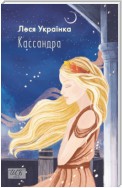Lesya Ukrainka

Larysa Petrivna Kosach-Kvitka (Ukrainian: Лариса Петрівна Косач-Квітка) (February 25 [O.S. February 13] 1871 – August 1 [O.S. July 19] 1913) better known under her literary pseudonym Lesya Ukrainka (Ukrainian: Леся Українка), was one of Ukraine's best-known poets and writers and the foremost woman writer in Ukrainian literature. She also was a political, civil, and female activist.
Ukrainka was born in 1871 in the town of Novohrad-Volynskyi of Ukraine. She was the second child of Ukrainian writer and publisher Olha Drahomanova-Kosach (better known under her literary pseudonym Olena Pchilka). Mykhaylo Petrovych Drahomanov, a well-known Ukrainian scientist, historian, philosopher, folklorist and public figure, was a brother of Drahomanova-Kosach and Lesya's uncle. Lesya had three younger sisters, Olha, Oksana, and Isydora, and a younger brother Mykola. Ukrainka's father was Petro Antonovych Kosach, head of the district assembly of conciliators. Petro came from the northern part of Chernihiv province. After completion his high school in Chernihiv Gymnasium, Kosach went to study mathematics at the University of Petersburg. Two years later, he moved to Kyiv University and graduated in law. Afterwards, in 1868 he married Olha Drahomaniv, Mykhaylo Drahomaniv’s, his friend’s sister. Despite his non-Ukrainian (Belarusian) background, Kosach was devoted to the advancement of Ukrainian culture and financially supported Ukrainian publishing ventures. Ukrainka was very close to her uncle M. P. Drahomanov (her spiritual mentor and teacher), and her brother Mykhaylo (who would be known under the pseudonym Mykhaylo Obachny) whom she called "Mysholosie."
Lesya had inherited her father’s features, eyes, height, and built. Like her father she was highly principled. Also, they both were delicate in their relationships with people. In addition, they both placed high standards on human dignity in each individual. Despite the fact about many similarities, one respect in which Lesya and her father were different is that her father had a gift for mathematics, but no gift for languages, on the contrary, Lesya had no gift for mathematics, but she knew English, German, French, Italian, Greek, Latin, Polish, Russian, Bulgarian, and her native Ukrainian.
Lesya's mother, a poet, was writing a verse and short stories for children in Ukrainian language under the pseudonym "Olena Pchilka". Also she took active participation in women’s movement, and published feminist almanac. Ukrainka's mother played a significant role in her upbringing. Ukrainian language was the only language used in the household, and to enforce this practice their children were educated by Ukrainian tutors at home, in order to avoid schools that taught Russian as the primary language. Ukrainka learned how to read at the age of four, and she and her brother Mykhaylo could read foreign languages well enough to read literature in their original language. Ukrainka had a good familiarity with Russian, Polish, Bulgarian, Greek, Latin, French, Italian, German and English.
By the time she was eight, she wrote her first poem, "Hope," which was written in reaction to the arrest and exile of her aunt, Olena Kosach, who took part in a political movement against the tsarist autocracy. In 1879, her entire family moved to Lutsk. That same year her father started building houses for the family in the nearby village of Kolodiazhne.[citation needed]
It was at this time that her uncle, Mykhaylo Drahomanov, encouraged her to study Ukrainian folk songs, folk stories, and history, as well to peruse the Bible for its inspired poetry and eternal themes. She also was influenced by well-known composer Mykola Lysenko, and famous Ukrainian dramatist and poet Mykhailo Starytsky.
At age thirteen, her first published poem, "Lily of the Valley," appeared in the journal Zoria in Lviv. It was here that she first used her pseudonym, which was suggested by her mother because in the Russian Empire, publications in the Ukrainian language were forbidden so Larysa Kosach's first collection of poetry had to be published secretly in western Ukraine and sneak into Kyiv under the pseudonym. At this time, Ukrainka was well on her way of becoming a pianist, but due to tuberculosis of the bone, she did not attend any outside educational establishment. Writing was to be the main focus of her life.
 čeština
čeština Deutsch
Deutsch français
français magyar
magyar polski
polski русский
русский English
English Azərbaycan
Azərbaycan беларуская
беларуская italiano
italiano ქართული
ქართული қазақ
қазақ Nederlands
Nederlands português
português slovenčina
slovenčina español
español 中文
中文 українська
українська



























